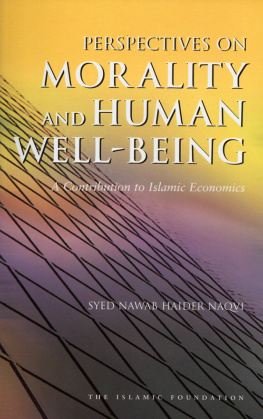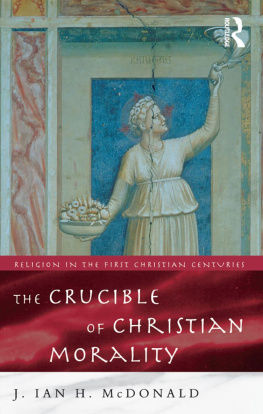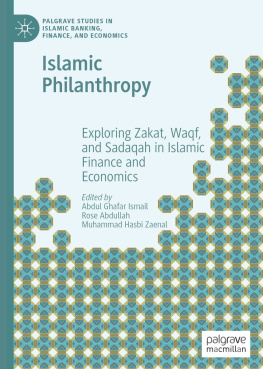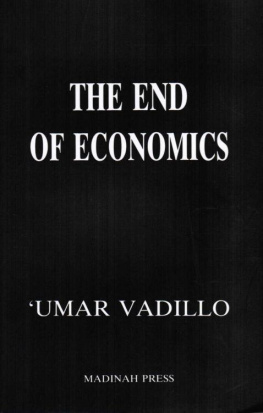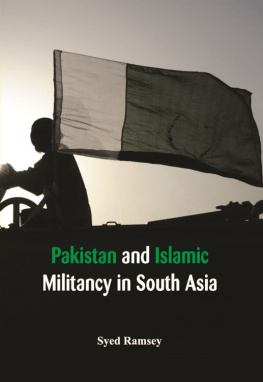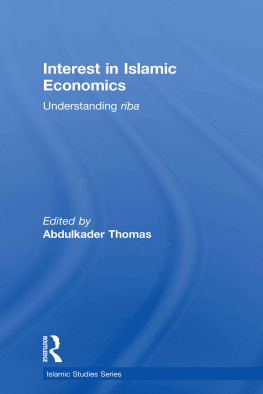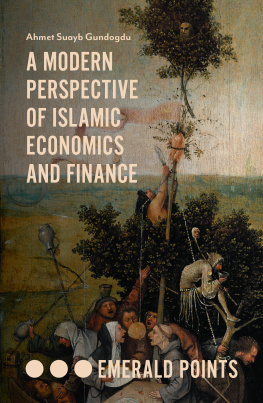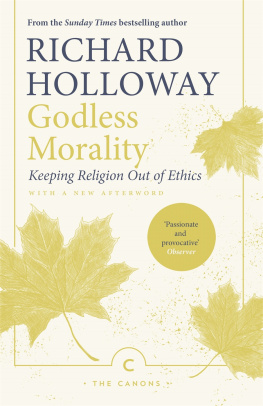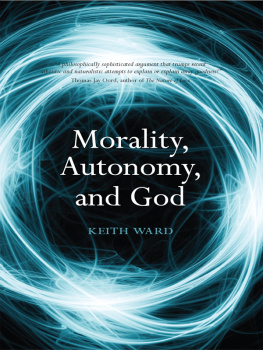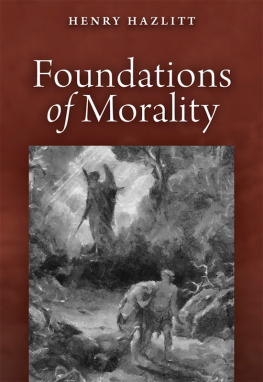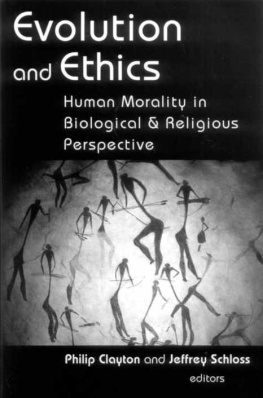Islamic Economics Series 24
PERSPECTIVES ON
MORALITY AND
HUMAN
WELL-BEING
A Contribution to Islamic Economics
Syed Nawab Haider Naqvi
THE ISLAMIC FOUNDATION
Islamic Economics Series 22
PERSPECTIVES ON
MORALITY AND
HUMAN
WELL-BEING
A Contribution to Islamic Economics
Syed Nawab Haider Naqvi
THE ISLAMIC FOUNDATION
Published by
THE ISLAMIC FOUNDATION
Markfield Conference Centre, Ratby Lane,
Markfield, Leicester LE67 9SY, United Kingdom
Tel: (01530) 244944/5, Fax: (01530) 244946
E-mail:
Web site: www.islamic-foundation.org.uk
Q URAN H OUSE , P.O. Box 30611, Nairobi, Kenya
P.M.B. 3193, Kano, Nigeria
Copyright The Islamic Foundation, 2003/1424 H
All rights reserved. No part of this publication may be reproduced, stored in a retrieval system, or transmitted in any form or by any means, electronic, mechanical, photocopying, recording or otherwise, without the prior permission of the copyright owner.
British Library Cataloguing-in-Publication Data
Naqvi, Syed Nawab Haider, 1935
Perspectives on morality and human well-being : a contribution to Islamic economics
1. Islam - Economic aspects 2. Economics - Moral and ethical aspects 3. Economics - Religious aspects - Islam 4. Islamic ethics
I. Title II. Islamic Foundation
297.273
ISBN 0 86037 328 2
ISBN 0 86037 387 8 pbk
eISBN 9780860376477
Dedicated
to
my wife Saeeda;
our children:
Andalib, Tehmina, Qurrat-ul-ain, and Neelofar;
and grandchildren:
Akbar, Rohina, and Zara
Contents
In a work of this kind, intellectual indebtedness to people who help grows at an exponential rate. Although it is impossible to mention them all, I am nonetheless deeply indebted to Professor Khurshid Ahmad, Chairman, The Islamic Foundation, who has been a source of unswerving support. I thank him for inviting me to write the present work, and for suggesting invaluable ideas, which have been incorporated into it. I am also especially grateful to Dr. Manazir Ahsan, Director General, The Islamic Foundation, who arranged financial and library support for this project; and to Mr. Khalid Rahman, Executive Director, The Institute of Policy Studies, Islamabad, for making available the necessary facilities. Special thanks are due to Mr. Faisal Khan, a promising lawyer, for his willingness to work beyond the call of duty, and for providing highly competent assistance, advice and support. Without his labour of love, this book could not have been completed on time. Also noteworthy is the assistance extended by my daughter, Neelofar Nawab, a lawyer, who suggested some good ideas and made important editorial improvements to the work. I also wish to record my profound appreciation and thanks to Dr. Rehana Siddiqui, Chief of Research, The Institute of Development Economics, Islamabad, for undertaking difficult empirical work which I assigned to her from time to time; to Professor Zafar Ishaq Ansari, Director General, The Islamic Research Institute, International Islamic University, Islamabad, for granting me unrestricted access to his very rich personal library, and to Professor Alamgir A. Hashmi for a stimulating exchange of views. I also wish to record appreciation of the excellent work done by Dr. Mehmet Asutay, the Head of the Islamic Economics Unit of the Islamic Foundation, Ms. Amrana Arif and Mr. Nasir Cadir, respectively secretary and graphic designer of the Islamic Foundation, and lastly Ms. Suzanne Thackray and Mr. Eric Fox, language editor and proof reader, to prepare this book for final publication. However, no list of acknowledgments can ever be complete without the most prominent mention of my (deceased) parents, (Syed Mohammed, Hasan Fatima and Hameed Fatima); of my uncle and aunt (Syed Mustafa Hasan and Haideri Begum), who very early in my life filled my heart with compassion for the least-privileged in society. I also thank my wife and children, sons-in-law (Imran and Ali Raza) and grandchildren, my sister, Nasim Zehra, and many other noble souls for protecting me from the ravages of time. And yet, while my gratitude to those people noted above is profound, only I bear the responsibility for the views expressed in this book.
The fall of the Berlin Wall in 1989, symbolising the collapse of Communism in the former USSR and Eastern Europe, was taken as a turning point in contemporary history, heralding, as claimed by intellectuals like Francis Fukuyama, a final victory for capitalism and liberal democracy indeed, as the end of history. The euphoria was, however, short-lived. Soon, the capitalist world began to be visited by one crisis after another: the Japanese stagnation after the implosion of its bubble economy, the crescendo in German unemployment and a low growth rate after integration, the Mexican, Argentinian and Brazilian financial debacles, a monetary rollercoaster for France and Great Britain resulting in the latters exit from the European monetary mechanism, the financial destabilisation of the South East Asian countries, the reversal of the dot.com upswing, the corporate crisis not merely undermining the US economy but also eroding confidence and trust in the key institutions of capitalism and the credibility of captains of economy in the wake of scandals involving Enron (USA), World Com (USA), Xerox Corp. (USA), Vivendi Universal (France) ABB Ltd. (Switzerland), Anderson. And then a decade of long-rising universal protest against globalisation as an instrument for the universalisation of an unjust and exploitative economic order. All these episodes have brought into sharp focus the failings of the capitalist system, only recently eulogised as mankinds final destiny.
Fortunately, the tone and temper of the current intellectual and political debate is changing. Two crucial strands of thought can be clearly discerned: namely, (a) a re-discovery of the critical relevance of morality to economic decision-making, and (b) the incapacity of the market-mechanism alone to ensure economic growth, stability and the well-being of all human beings and national and global economies.
The inherent weakness of the secular, liberal economic model has been exposed. Furthermore, the weakness of an exclusive reliance on efficiency/growth criterion is being increasingly acknowledged in informed circles. The search for new paradigms that can simultaneously focus on efficiency with equity, growth with justice, and wealth with well-being goes on.
There is also another dimension to this debate that is equally important. The centrality of the market mechanism is not in dispute. What is unacceptable however is market fundamentalism, as George Soros one of the icons of capitalism has put it. The market cannot be allowed to be the lone arbiter of economic decision-making. Instead, it must be constrained and guided by moral values and social objectives. Non-market institutions have a role to play as an integral part of the socioeconomic matrix. The state too has a positive, although not totalitarian or authoritarian, role to play to ensure not only the efficient working of the market but also the achievement of the moral and social goals of society. The bubble of market fetishism has burst with the crumbling of corporate capitalism and the failure of the Western economic ideology to eliminate poverty, extreme economic inequalities, and gross injustices from human society, both global as well as in developed countries. Within such an intellectual landscape the publication of Professor Syed Nawab Haider Naqvis book Perspectives on Morality and Human Well-Being: A Contribution to Islamic Economics

